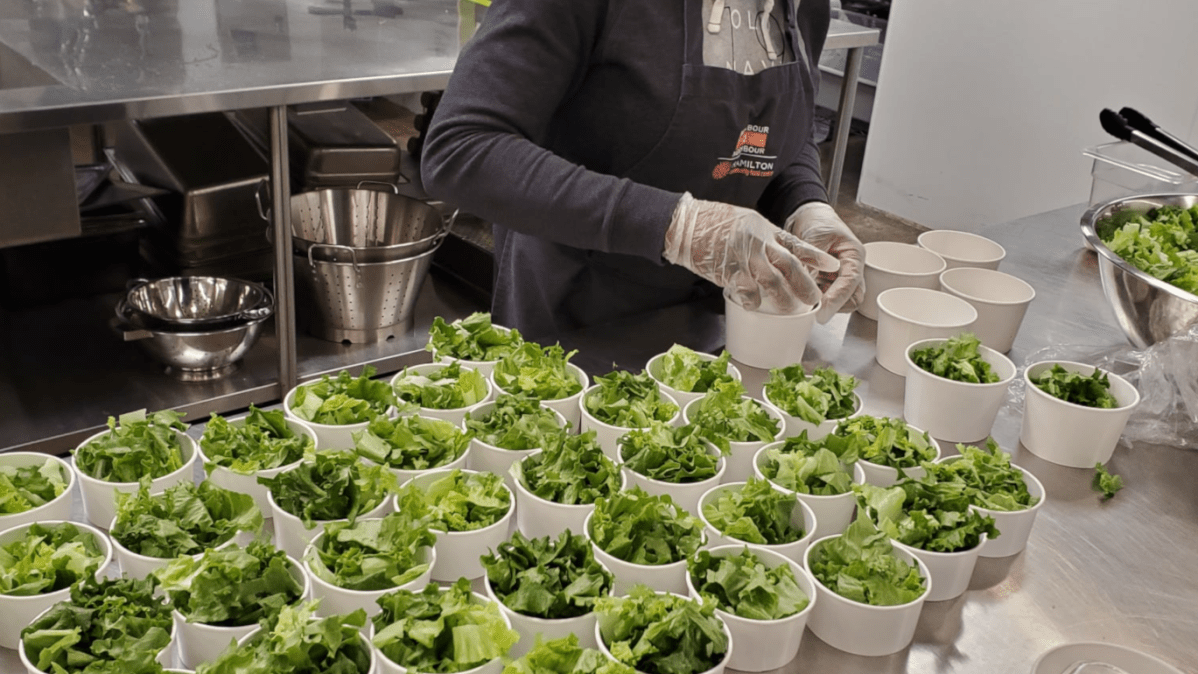A director with a non-profit poverty prevention entity in Hamilton says the organization is looking at a $100,000 funding shortfall going into 2023 that could result in a reduction in some food programs should they fail to secure additional funding.

Krista D’Aoust, director of community food and family services with Neighbour to Neighbour Centre, explained that the deficiency comes as the organization was redirected to the City of Hamilton’s enrichment fund with a $200,000-a-year seed fund from public health no longer being accessible.
“Applying to city enrichment funding meant that we were asking for all of our programs to continue to be funded, but unfortunately, not all of them were,” D’Aoust told 900 CHML’s Good Morning Hamilton.
“There’s just so much need and so many requests right now that they weren’t able to accommodate all of our requests.”
The city’s fund, which supports a number of community programs, including arts, sports, environment and services, had a budget allocation of just over $6 million in 2022 but about $8.1 million in eligible requests, according to a June audit and finance committee report.
A spokesperson from the city’s government relations and community engagement told Global News in an e-mail that requests for money from the community services stream totalled $3.5 million from a pool of just $2.1 million made available in 2022.

Get daily National news
The Hamilton Community Food Centre is the Neighbour to Neighbour network most affected by the shortfall.
Previously, six years of public health money culminated in the creation of diverse food programs aimed at improving community health and wellness that will now need alternative capital to survive.
Among the programs that failed to secure the city aid were the food centre’s community meals initiative, good food markets and the community garden network supporting 63 gardens across the city in which $5,000 to $8,000 is allocated yearly in resources.
“We help new community gardens start up, we provide consultation and just really manage and keep that network going,” D’Aoust explained.
“That’s one area that we’ll have to look at, whether or not we can continue to do that.”
The centre’s youth community kitchens, which teach cooking skills through a program that enlists about 40 people a year, also failed to secure funds and could be in jeopardy.
“That is something that I think that we’re really committed to making sure that we get funding for, because we know that youth in our community … is just a really, really important investment,” D’Aoust said.
Ultimately, D’Aoust says their circumstance is the result of an emergency food system seeing folks who have never used food banks before – like those on social assistance, disability supports and the working poor.
“These are folks who are experiencing the greatest squeeze right now, and we’re looking at how we can advocate government for increased social supports for people,” D’Aoust said.
- Much of Canada faces extreme cold, heavy snow in latest winter blast
- 3 in 10 Albertans would vote for independence — but only half committed to separating: poll
- Pimicikamak Cree Nation to evacuate 79 more homes after military assessment
- China’s envoy says Beijing, Ottawa ‘eye to eye’ on supporting Greenland











Comments